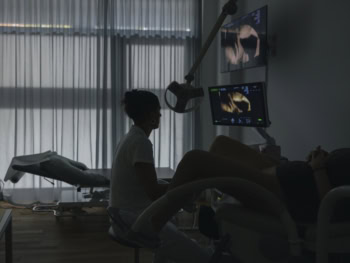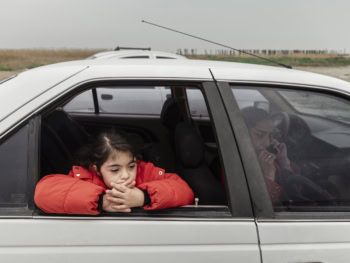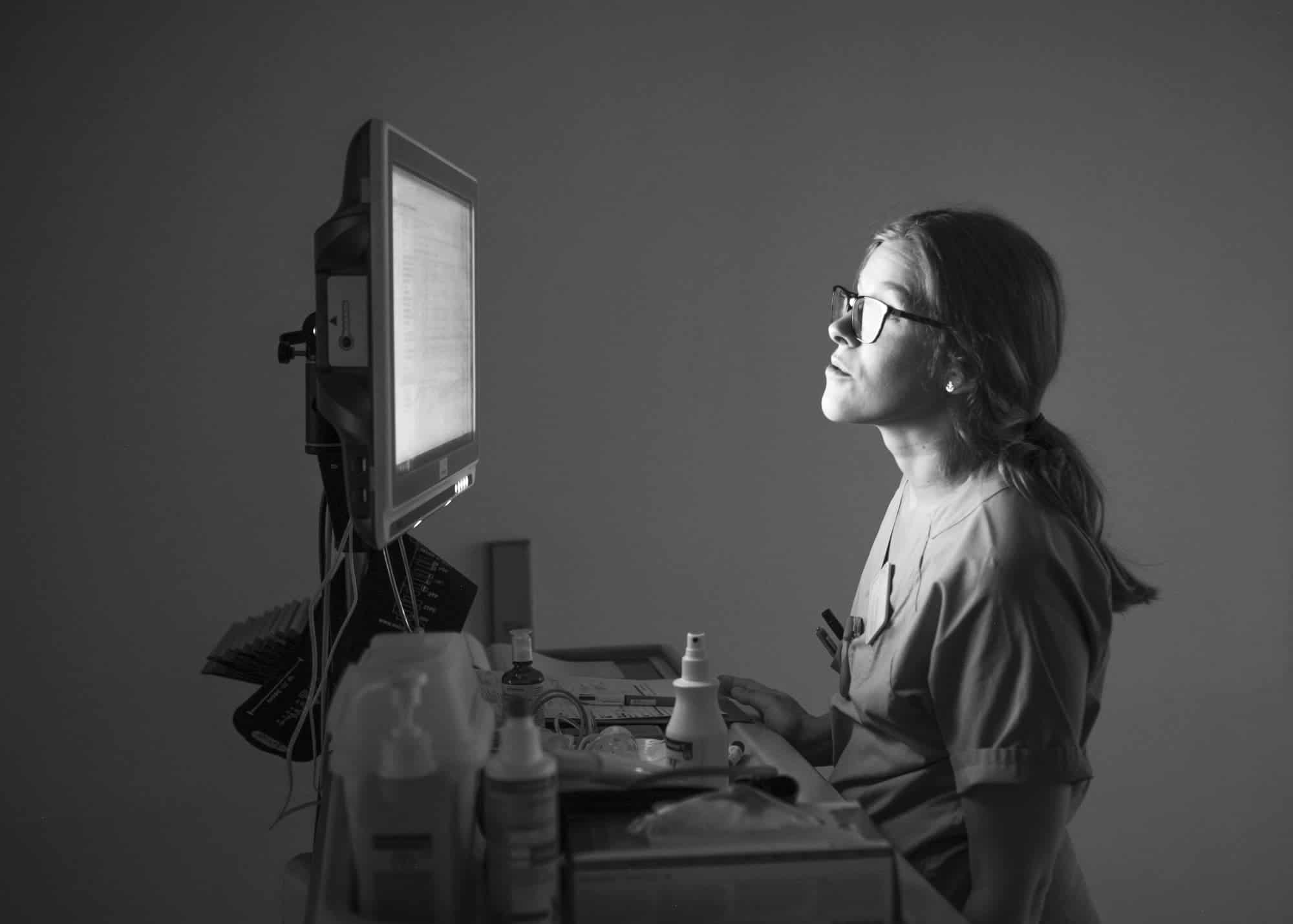 © Patricia Kühfuss, May 3, 2018
© Patricia Kühfuss, May 3, 2018
At the beginning of her studies , the photographer lived with several nurses. They inspired the subject of her photo series, which has become more topical than ever due to the Corona pandemic. Patricia Kühfuß shows the everyday professional life of people who care for others at the limits of their resilience.
Nursing is a highly complex profession that requires technical, medical and human expertise. It is difficult to represent this work visually, as care touches on people’s privacy and raises the question of where the boundaries of what can be shown are. Therefore, in the media, the profession is often reduced to the symbolic image of a bed-shifting nurse, and the performance of nursing work remains invisible.
Before Patricia Kühfuss photographed her story, she was warned about the difficulty of accessing care facilities. But she was not dissuaded from her idea:
The deciding factor was that I wanted to photograph a subject for my bachelor’s degree that was really close to my heart.
 Patricia Kühfuss
Patricia Kühfuss
The nursing shortage also has a sexist layer, Kühfuss said. For patients, help in everyday life is just as important in the end as help in life-threatening moments. “These things are often labeled as ‘care-work’ – historically, typically female tasks,” the photographer explains.
Since completing her studies at the University of Applied Sciences and Arts in Hanover, Patricia Kühfuss has been working as a freelance photographer. At the Lumix Festival 2020, she received the HAZ Audience Award for the work “Nicht müde werden” shown here. Her photographs are published in the Frankfurter Allgemeine Zeitung, GEO, National Geographic and ZEIT Magazine, among others.
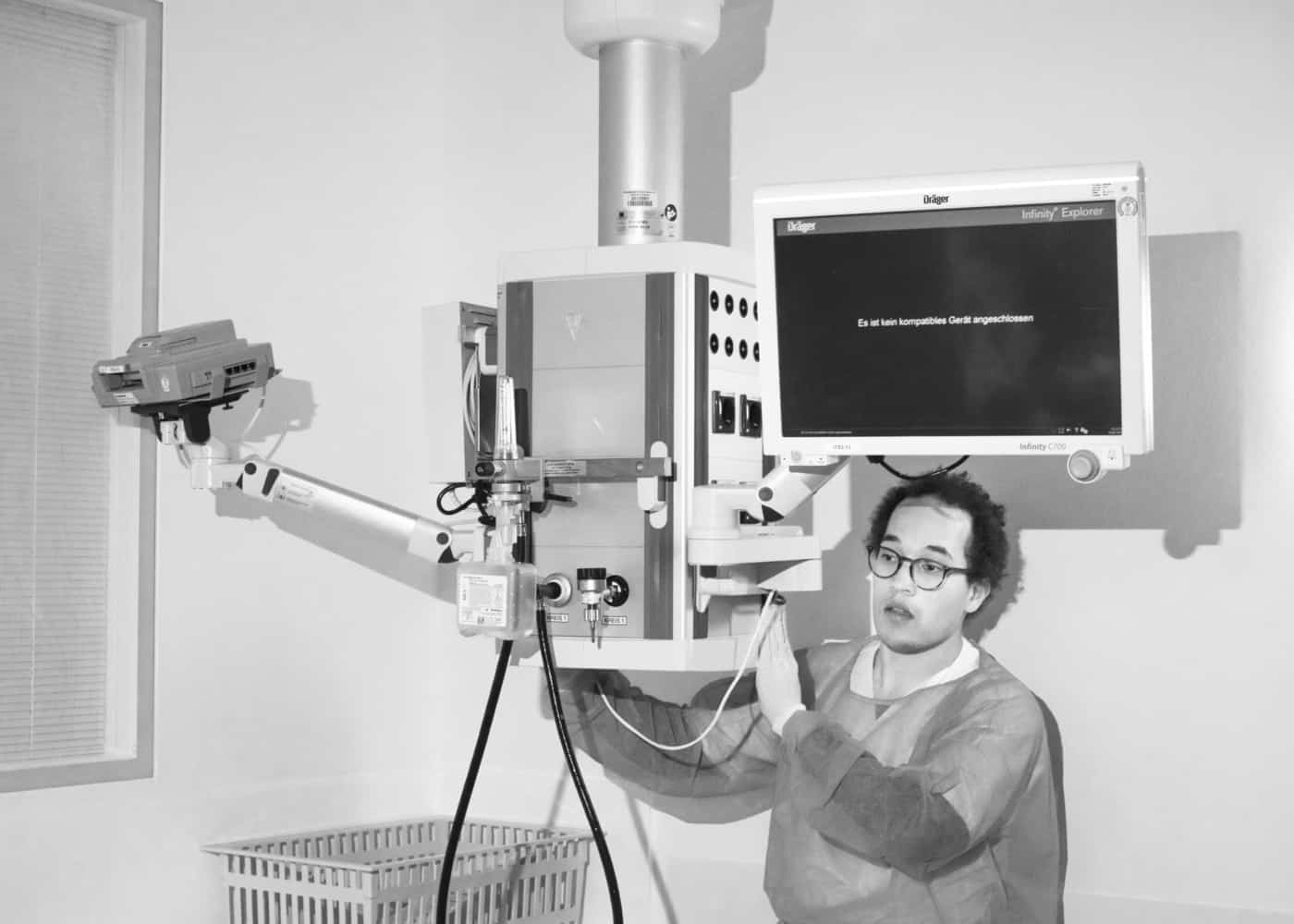 © Patricia Kühfuss, May 12, 2018
© Patricia Kühfuss, May 12, 2018
Peter H. prepares a room for a patient returning from intensive care. 80 percent of German hospitals now report difficulties in finding nursing staff.
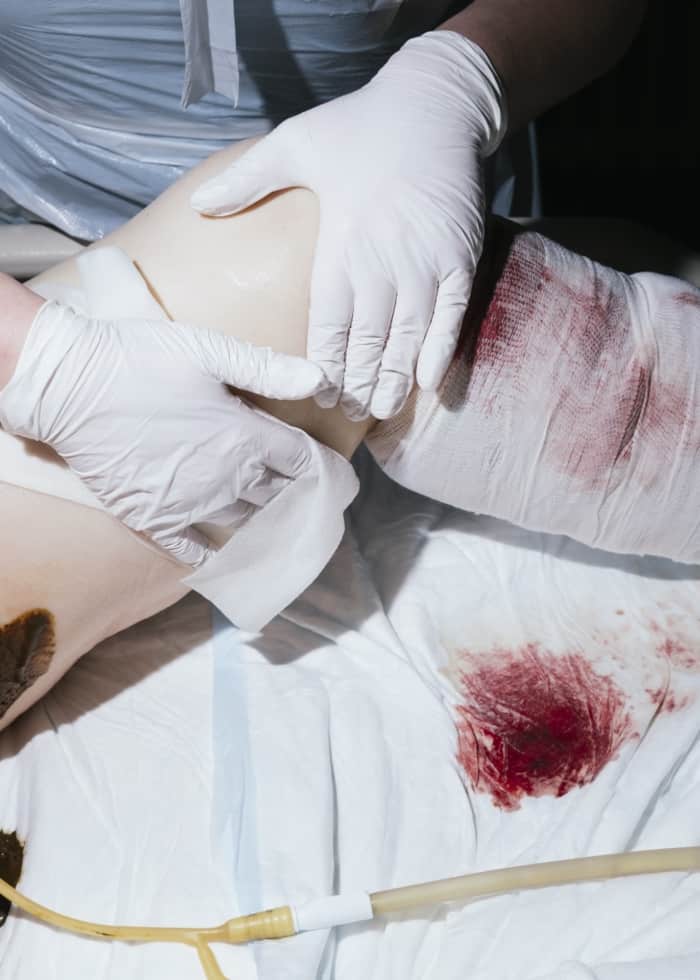 © Patricia Kühfuss, May 3, 2018
© Patricia Kühfuss, May 3, 2018
A patient is washed during a night shift. Actually, it should be a matter of course that the patients’ hygiene remains at a dignified level. But many nurses complain that they do not have enough time to care for patients adequately.
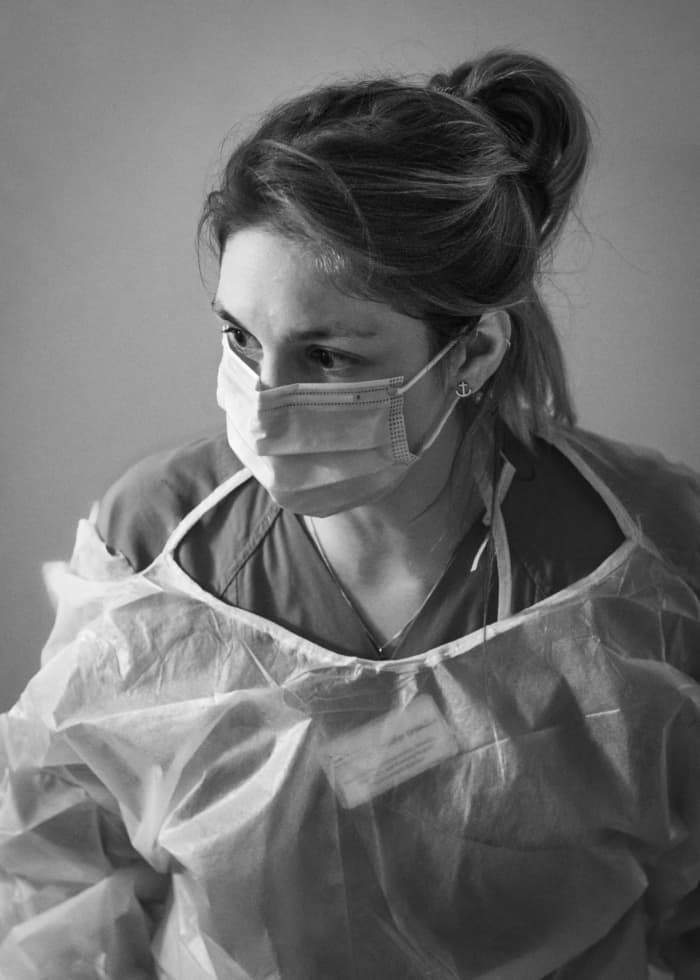 © Patricia Kühfuss
© Patricia Kühfuss
Intensive care nurse Jennifer G. assesses a patient’s situation—it’s critical. Because there are not enough staff, many intensive care nurses have to work without supervision after just one month. In the past, training to become an intensive care nurse took a year.
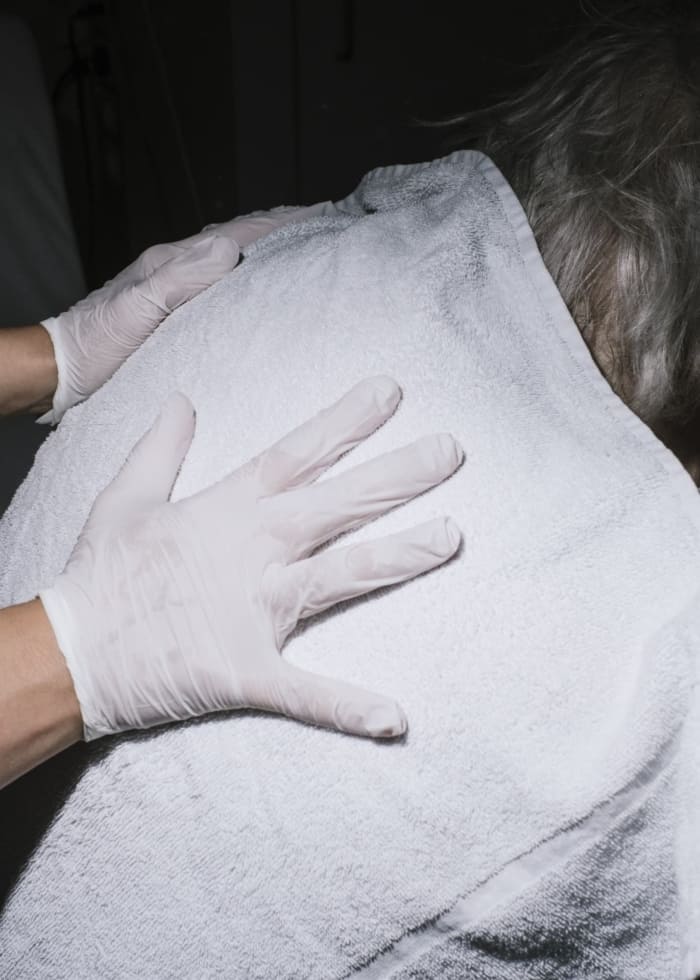 © Patricia Kühfuss, May 1, 2018
© Patricia Kühfuss, May 1, 2018
A patient is feeling very unwell. A nurse takes care of him by wiping the sweat from his body.
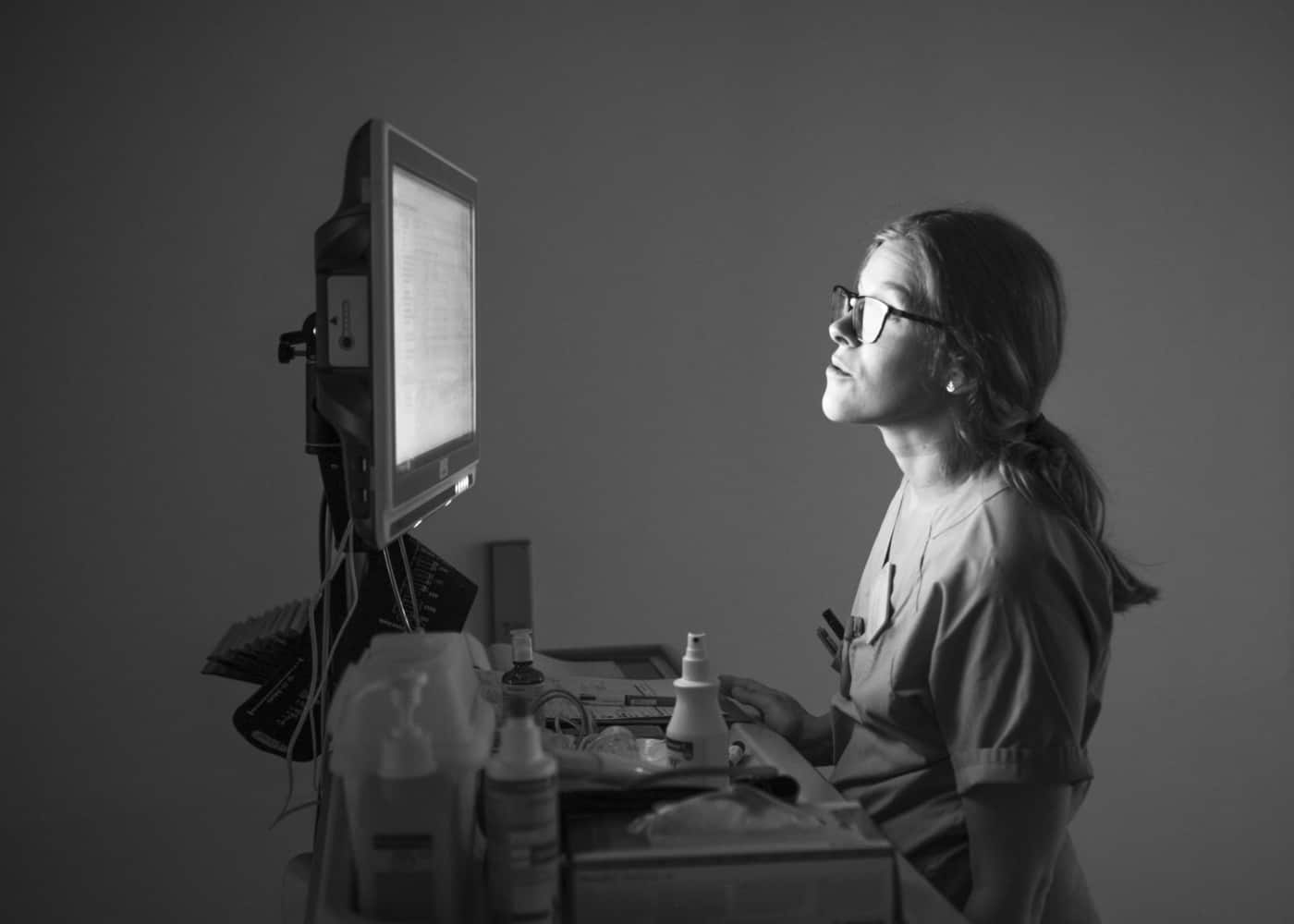 © Patricia Kühfuss, May 1, 2018
© Patricia Kühfuss, May 1, 2018
Thorid G., documents the data of her patients during a night shift. Although she has already worked the last few nights, she once again has to fill in for a sick colleague.
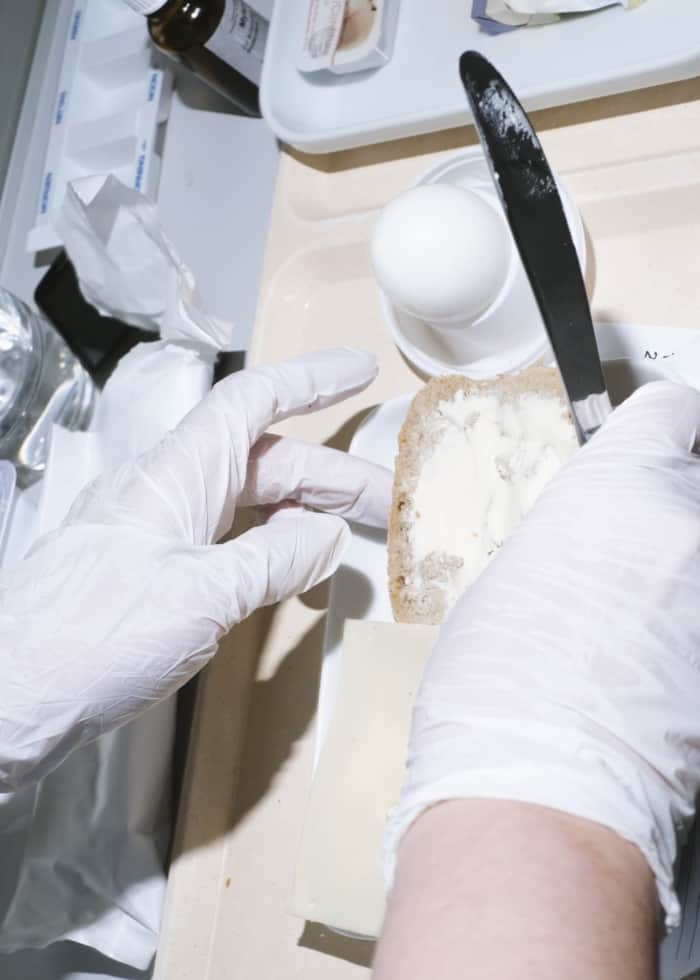 © Patricia Kühfuss, May 17, 2018
© Patricia Kühfuss, May 17, 2018
A nurse prepares breakfast for a patient who can’t do it himself.
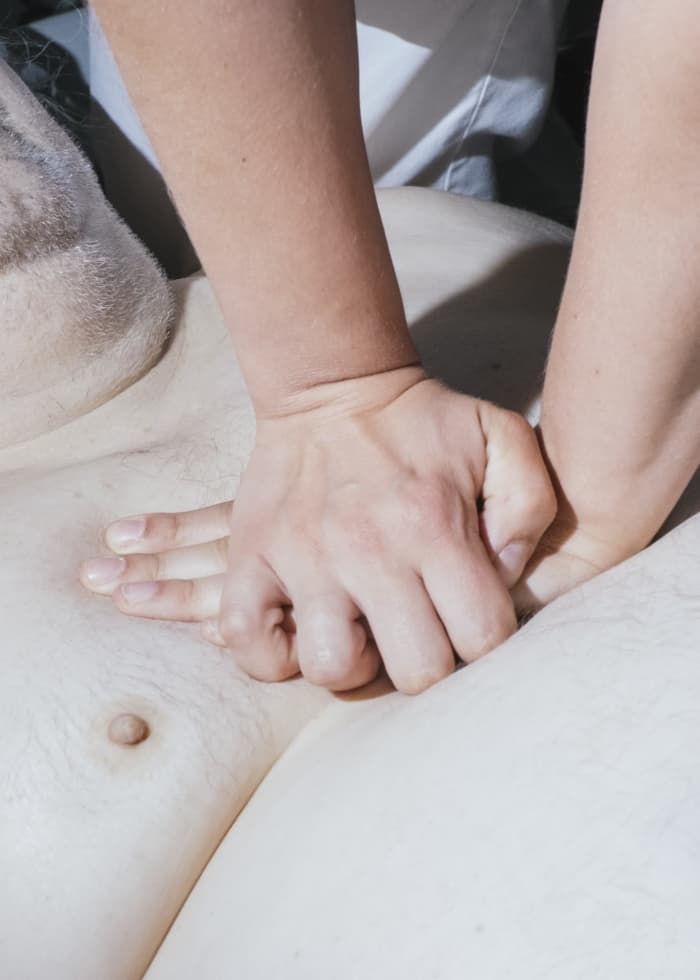 © Patricia Kühfuss, May 1, 2018
© Patricia Kühfuss, May 1, 2018
A nurse attempts to resuscitate a patient. Nurses usually spend the most time with a patient—accordingly, lives literally depend on their attention and skill.
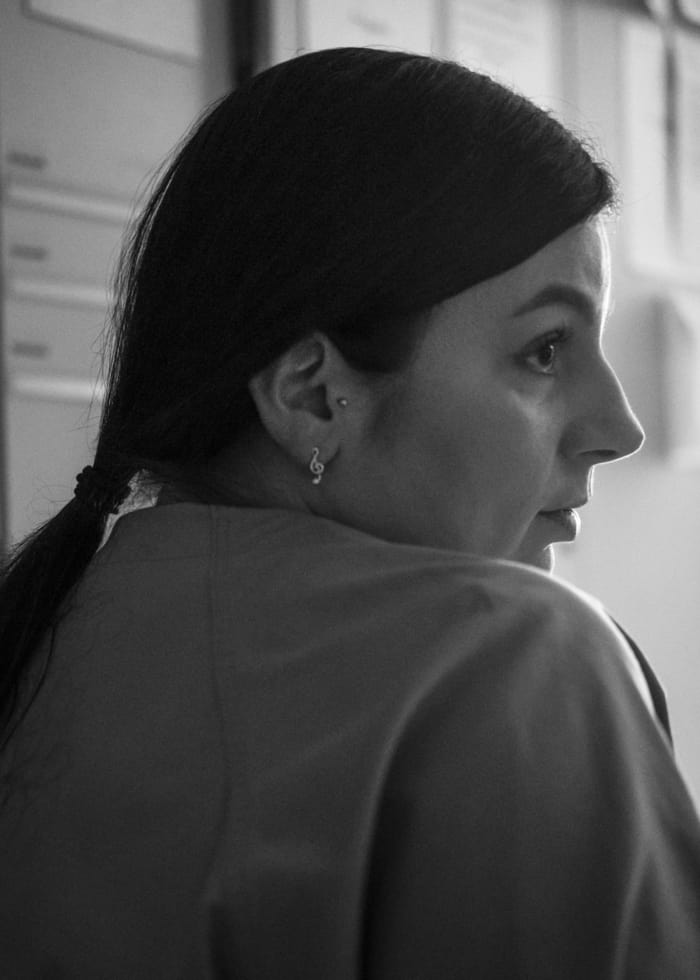 © Patricia Kühfuss
© Patricia Kühfuss
Jana S. takes a break during the night shift. The staff shortage is sometimes so great that colleagues even have to be called back from holiday.
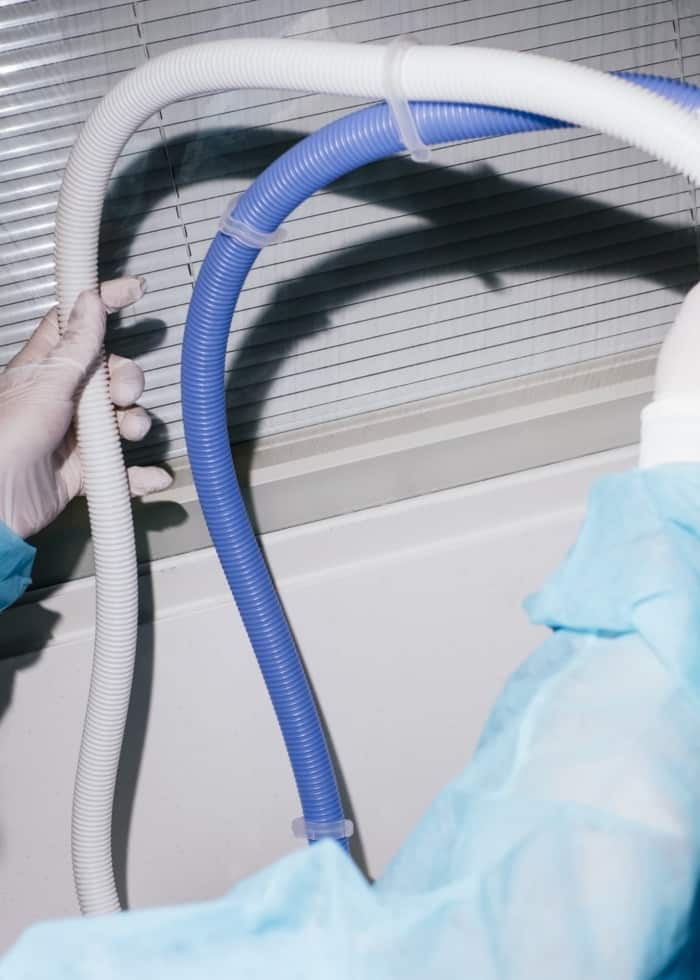 © Patricia Kühfuss, May 12, 2018
© Patricia Kühfuss, May 12, 2018
A nurse prepares a ventilator for a patient.
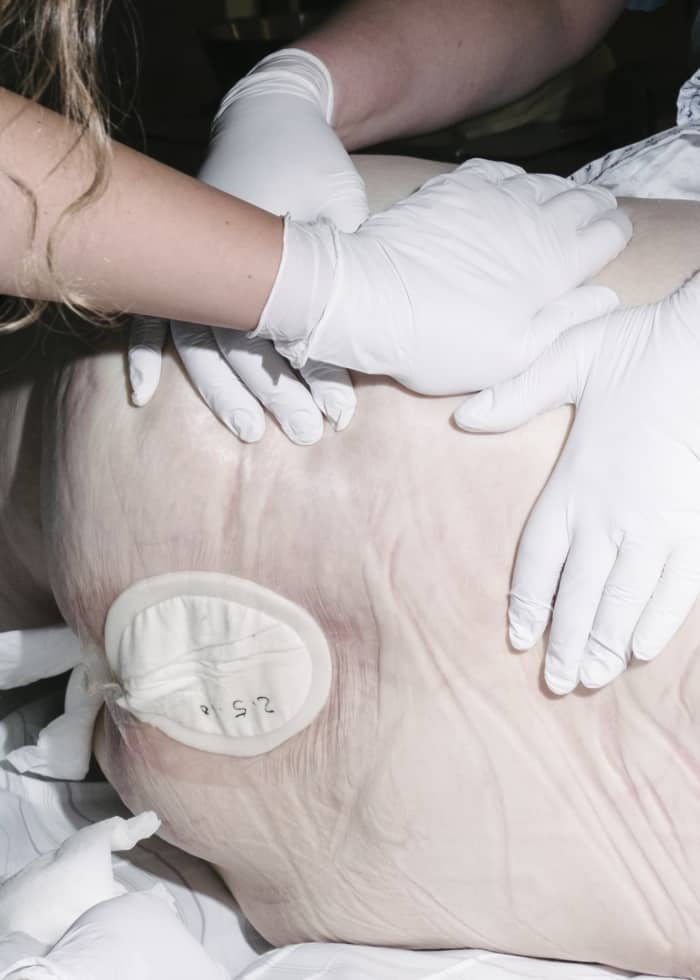 © Patricia Kühfuss, May 3, 2018
© Patricia Kühfuss, May 3, 2018
Two nurses move a patient to check the status of his pressure ulcer dressing.
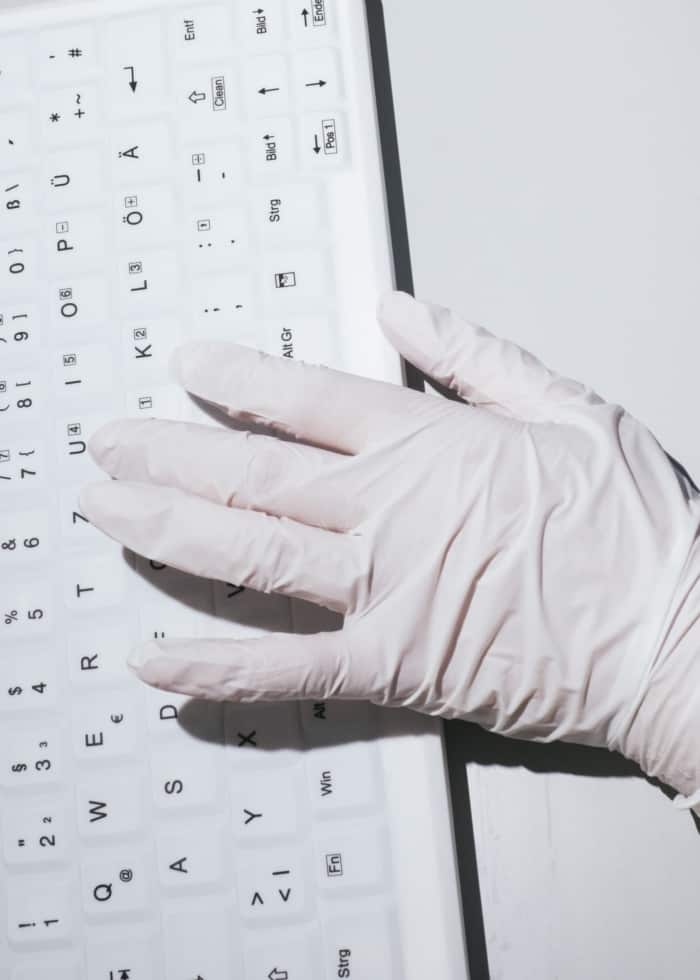 © Patricia Kühfuss, May 12, 2018
© Patricia Kühfuss, May 12, 2018
A nurse takes the data of a patient. She wears a glove while doing so, which poses a hygiene risk. Due to time pressure, nurses are often unable to comply with hygiene standards.
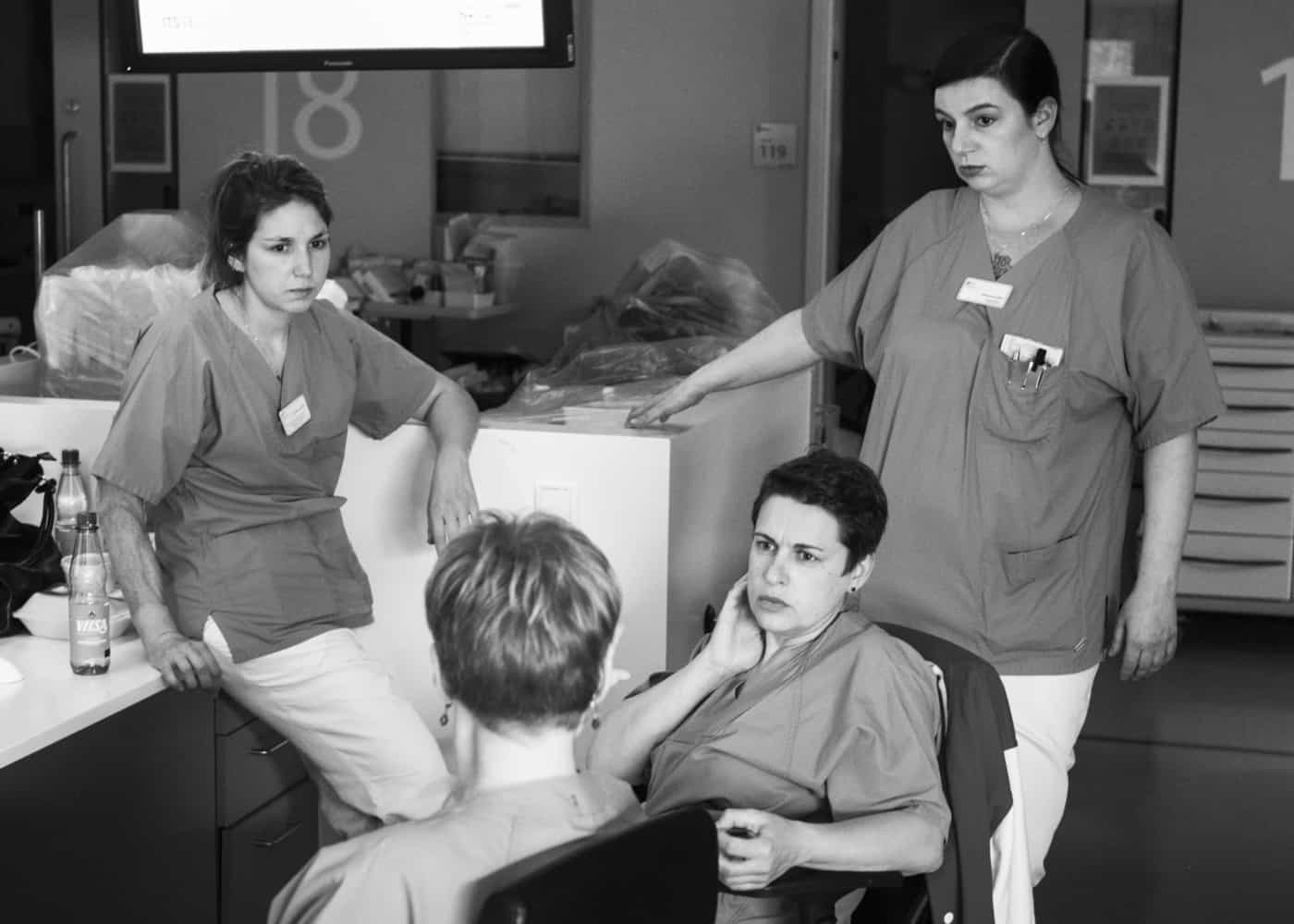 © Patricia Kühfuss, May 3, 2018
© Patricia Kühfuss, May 3, 2018
Jennifer G., Sussan M., and Jana S. (from left) discuss during a night shift.
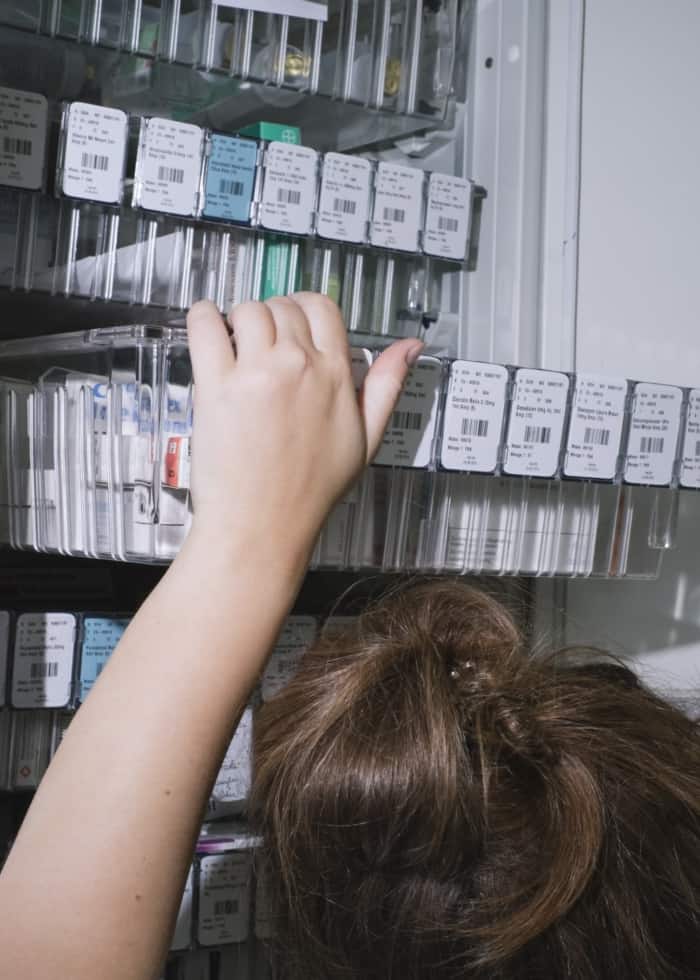 © Patricia Kühfuss, May 18, 2018
© Patricia Kühfuss, May 18, 2018
Hannah M. is looking for the right medication. She is doing a voluntary social year here. Although interns, trainees, and volunteers are mainly supposed to learn and support, they are often used like fully trained nurses due to the nursing shortage. As a result, many of them feel overwhelmed and decide against a career in nursing. This makes the situation even worse.
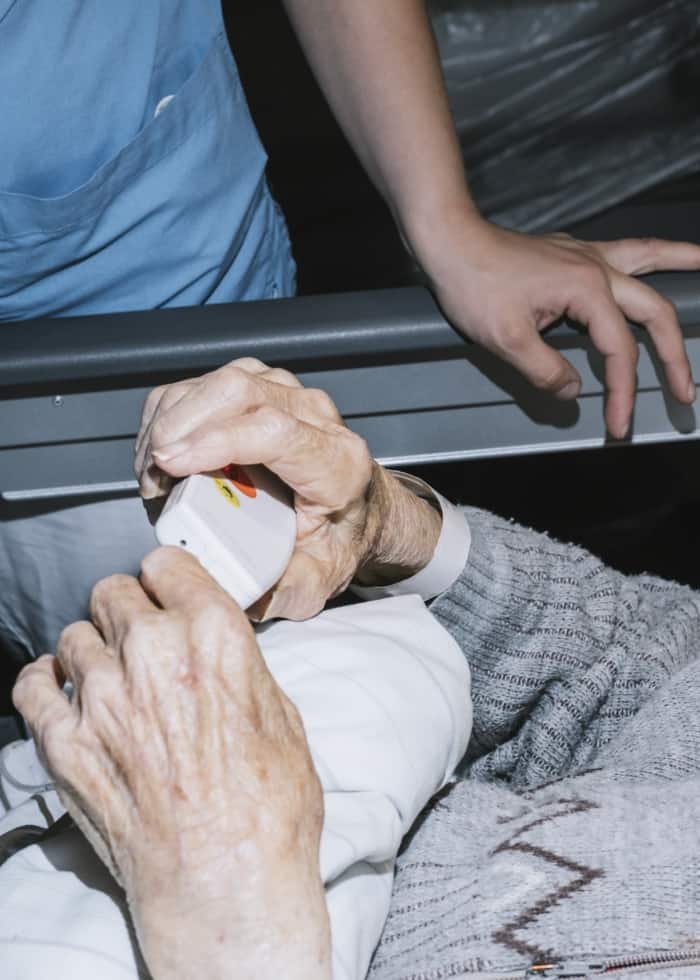 © Patricia Kühfuss, May 1, 2018
© Patricia Kühfuss, May 1, 2018
A nurse tries to calm a patient suffering from dementia. Before that, he has called her four times. He thinks he has to leave the hospital.
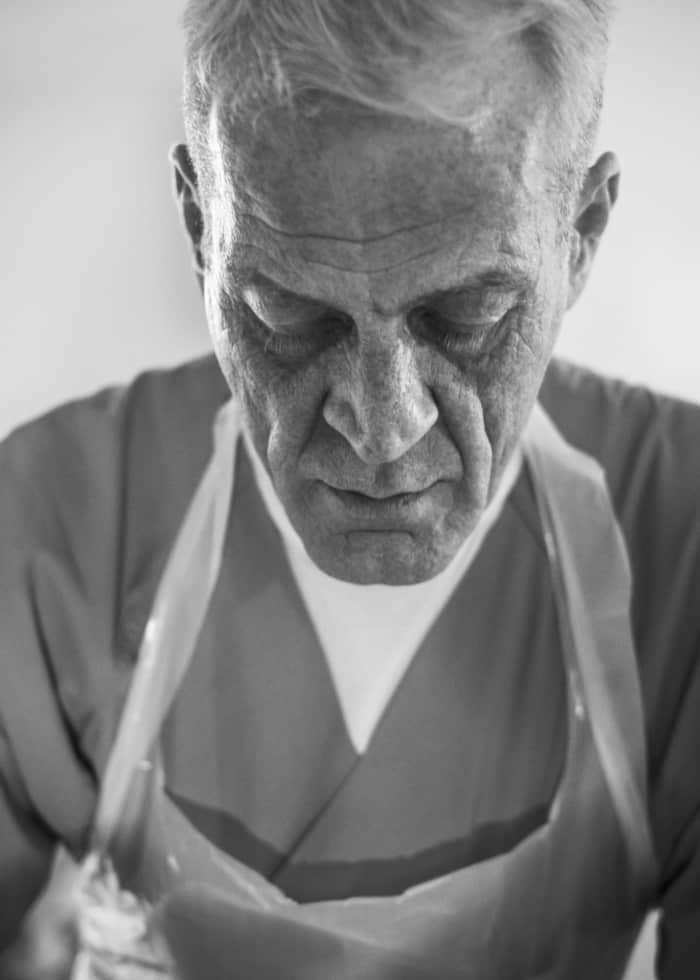 © Patricia Kühfuss, May 12, 2018
© Patricia Kühfuss, May 12, 2018
Michael B. is caring for a patient during the night shift. He has been working as an intensive care nurse for 10 years and is one of the most experienced on his shift.
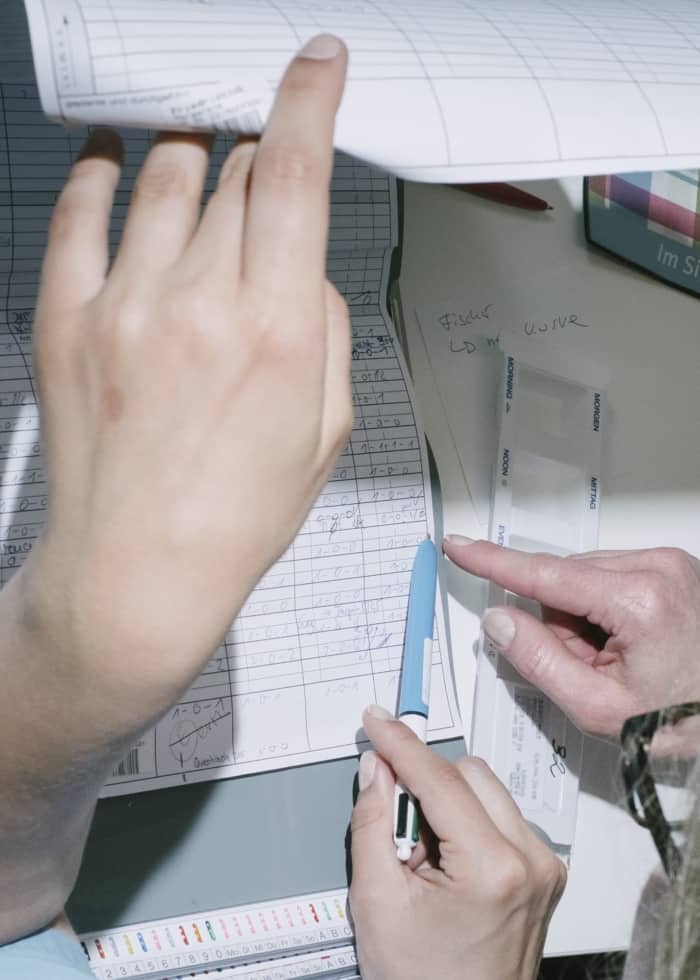 © Patricia Kühfuss, May 10, 2018
© Patricia Kühfuss, May 10, 2018
Two nurses check each other’s calculations for a patient’s medication late at night.
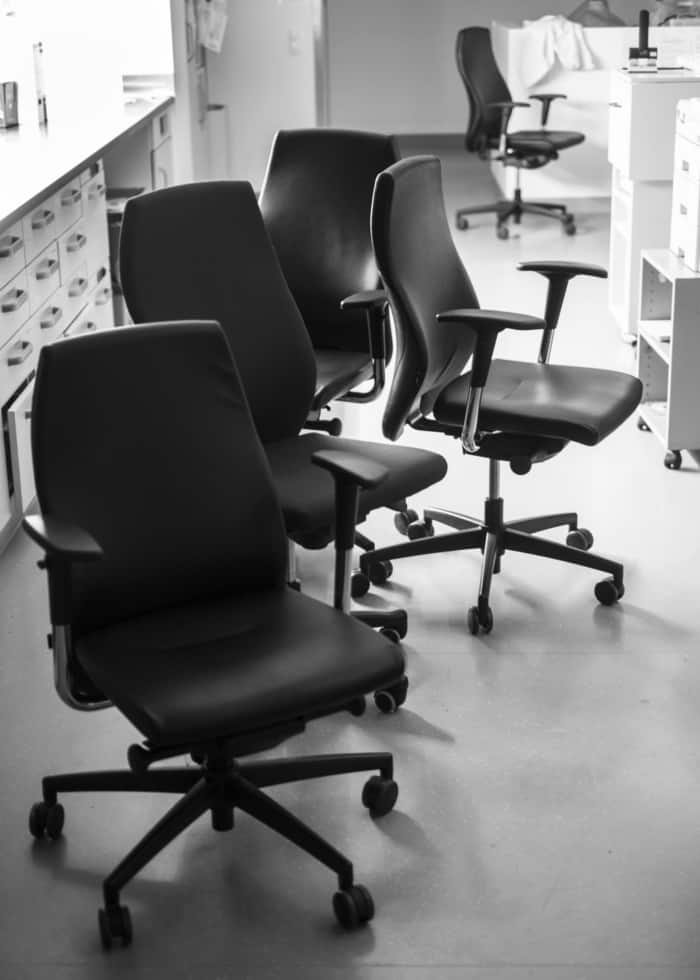 © Patricia Kühfuss, May 3, 2018
© Patricia Kühfuss, May 3, 2018
Hospitals can only bill for work that has been documented. Therefore, more and more work has to be spent on documentation instead of on the patients.
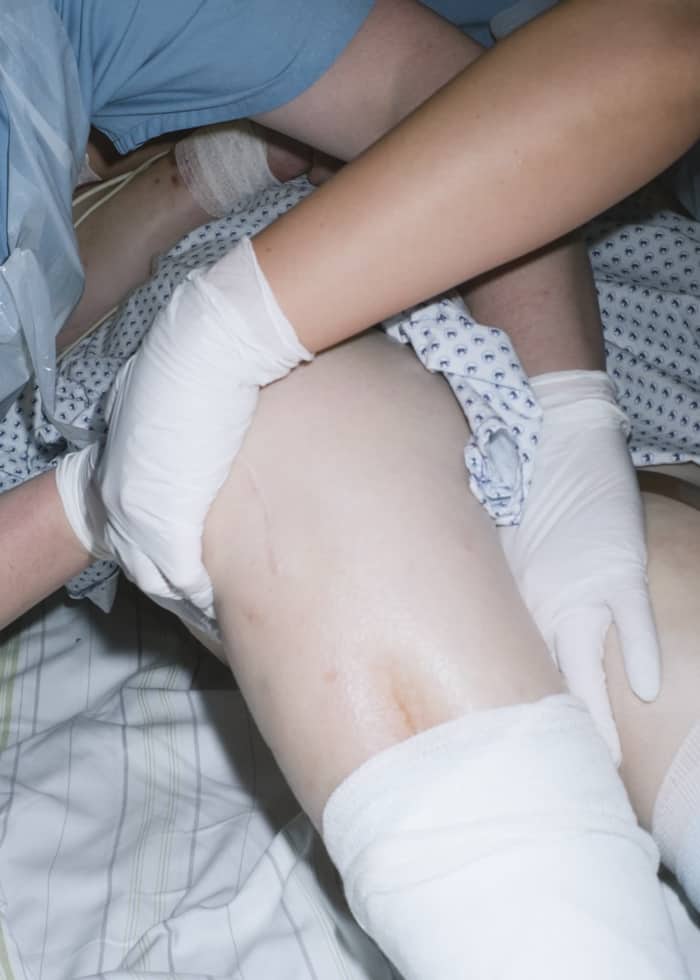 © Patricia Kühfuss, May 1, 2018
© Patricia Kühfuss, May 1, 2018
Two nurses move a patient to avoid sores.
In a system in which every action is measured in terms of money, it is forgotten that good care requires expertise and, above all, time.
 Patricia Kühfuss
Patricia Kühfuss
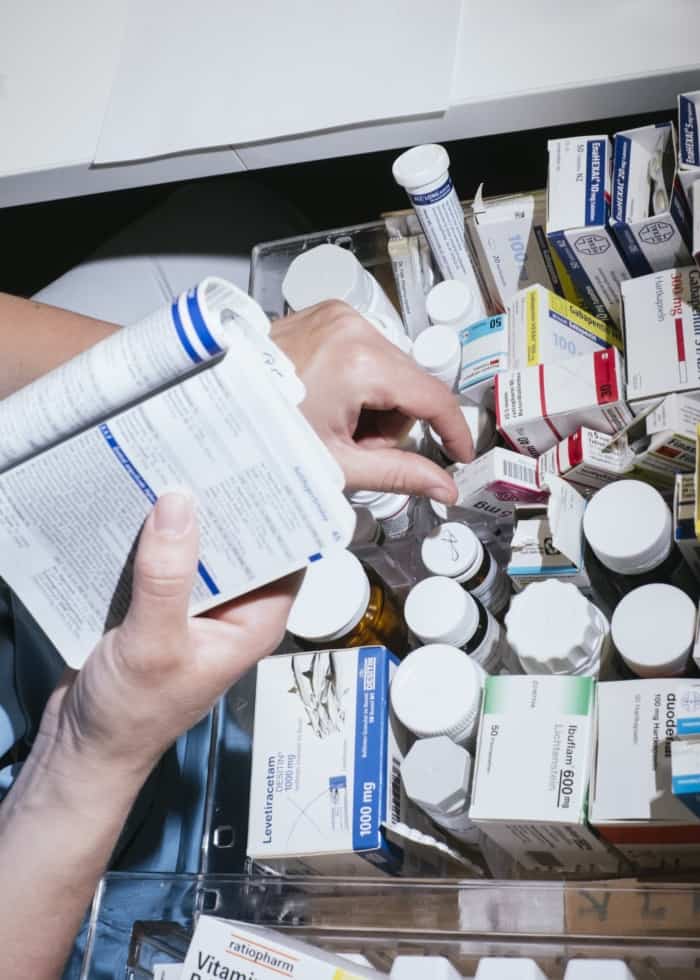 © Patricia Kühfuss, May 3, 2018
© Patricia Kühfuss, May 3, 2018
A nurse prepares medications for patients during a night shift.
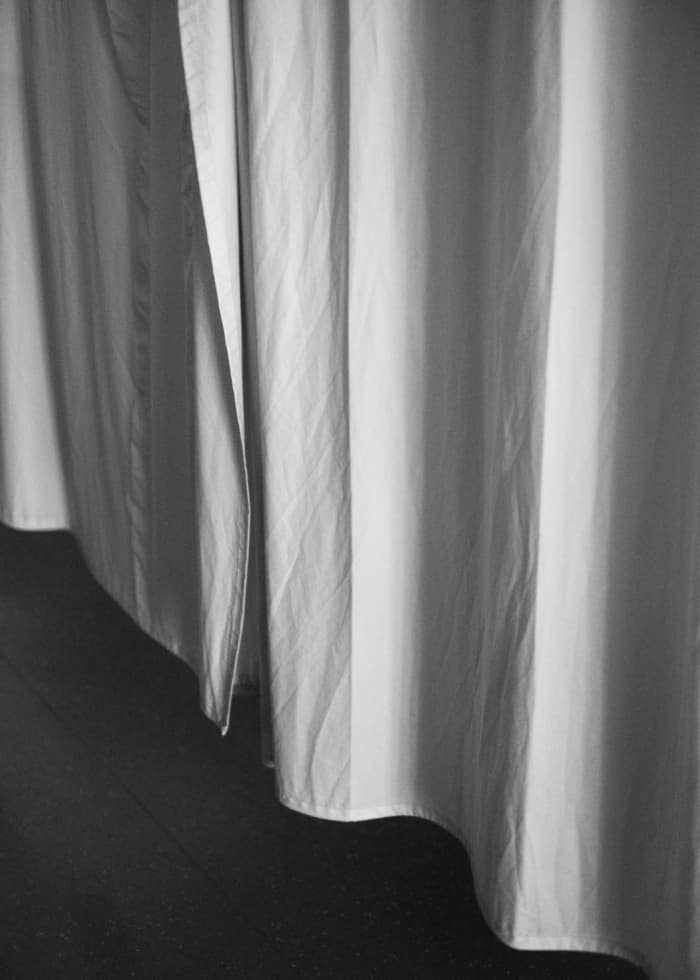 © Patricia Kühfuss, May 3, 2018
© Patricia Kühfuss, May 3, 2018
Usually, it’s just a cotton curtain that separates patients in an intensive care unit. Every so often there are up to four beds in one room. Because 24-hour care is essential, it is never completely quiet in there. In emergencies, the surrounding patients hear everything.
Up to 20 percent of them develop post-traumatic stress disorder.
It would drastically improve the situation to have only two beds in one room. But it would also be pricier.
Your contact partners will be happy to assist you with your personal concerns. However, due to the large number of enquiries, we ask you to first check our FAQ to see if your question may already have been answered.
Dean of Studies, Design and Media department
Programme representative
Application and admission procedure
Hochschule Hannover
Faculty III – Media, Information and Design
Expo Plaza 2
D-30539 Hanover
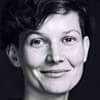 Patricia Kühfuss documents the shortage of staff at German hospitals.
Patricia Kühfuss documents the shortage of staff at German hospitals.